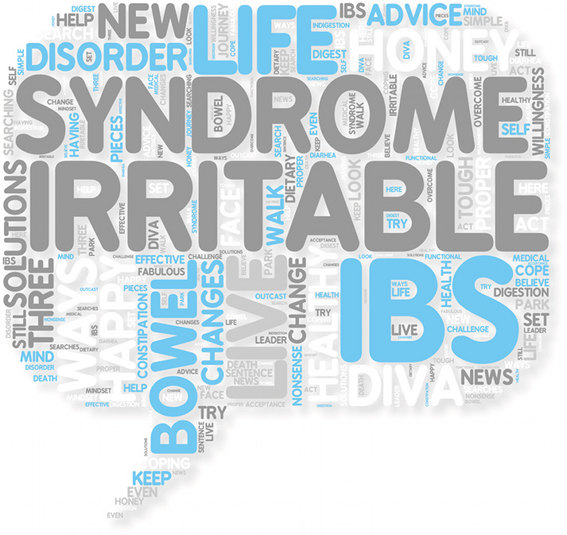Get weekly tips, recipes, and my Herbal Jumpstart e-course! Sign up for free today.

Irritable Bowel Syndrome
Share this! |
|
|
Digestive problems can really be a pain. Sure, everyone has some troubles with digestion from time to time but, when those problems become a daily occurrence, life can be a nightmare. If you have irritable bowel syndrome (IBS), you know exactly what I am talking about. Irritable bowel syndrome is a health problem that I love helping people overcome. Western medicine, by its own admission, does not have an effective IBS treatment. Its pharmaceuticals may offer some temporary relief of IBS symptoms but they never actually cure the disease! “Few medicines [for IBS] have proved consistently helpful, and all medicines have side effects”. |
This is the first article in a series of articles about irritable bowel syndrome. This first article answers initial questions people have about IBS, such as:
- What is IBS?
- What’s an IBS treatment?
- What are IBS symptoms?
- What is the best IBS medication?
Here is a preview of the rest of my series on IBS
- Part 2: Help for IBS - Understanding Holistic care for IBS
- Part 3: IBS Diet
- Part 4: Herbal Remedies for IBS
- Part 5: Probiotics and IBS
- Part 6: Solutions for IBS with constipation
Before we get to IBS treatment, let’s explore…
What is Irritable Bowel Syndrome?
Irritable bowel syndrome is a common digestive disorder. It’s called a functional disorder because there is no specific clinical test for diagnosing IBS. People diagnosed with IBS have a variety of different symptoms. Some may have long-term problems with constipation, diarrhea, or alternating between the two.
IBS-C: designates someone with more problems with constipation
IBS-D designates someone with more problems with diarrhea
IBS-A: designates someone who alternates between diarrhea and constipation
How common is IBS? An estimated 55 million people in the US are affected by IBS and IBS symptoms result in the second most missed days of work (second only to the common cold).
Unlike colitis or Crohn’s disease, IBS does not have an inflammatory component.
IBS Symptoms
As I already mentioned, people diagnosed with IBS can have dramatically different symptoms.
Some people with IBS may have more problems with constipation, while others may have diarrhea or even alternate between diarrhea and constipation.
With the understanding that symptoms vary, here’s a general list of IBS symptoms:
- gas and bloating
- constipation
- diarrhea
- mucus in stool
- irregular bowel patterns
- cramping
- pain in the lower abdominals that is relieved with a bowel movement
- food intolerance
Western Medicine IBS Treatment
Western medicine has a plethora of drugs that attempt to alleviate symptoms of IBS. If you look on any western medicine website (WebMD, MedLine, etc) you will see they all state that there is no cure for IBS.
It’s really unfortunate that IBS treatment within western medicine is so behind the times! I see people completely overcome their IBS symptoms without harsh drugs with side-effects all the time.
So let’s look at some of these IBS medications.
Rather than look at the underlying cause of IBS (which we’ll do in Part 2 of this series: Help for IBS), western medicine simply treats people based on their symptoms. If people primarily have constipation, they get laxatives. If people primarily have diarrhea, they get anti-diarrheals.
Here’s a look at commonly prescribed western medicine IBS treatment.
For Those With Constipation
Laxatives can provide short-term relief for constipation but have problematic long-term complications. Basically, what happens is your body becomes reliant on the laxatives, making a regular bowel movement impossible. Overcoming laxative dependence can be difficult! So better to avoid long-term use of laxatives.
Western medicine uses the following medications for people who have constipation-dominant IBS. (Please note: I am not a doctor and I am not offering medical advice. I am only sharing information that is readily found elsewhere).
Osmotic Laxatives: These laxatives work by pulling more water into the colon. This helps most people achieve a bowel movement, but others may experience more bloating. Side effects include diarrhea. Miralax is an example of an osmotic laxative.
Stimulant Laxatives: These often contain an herb! Senna is a powerful stimulant laxative that definitely produces results. However, if taken incorrectly the resulting bowel movement could be accompanied by lots of cramping. And, as mentioned above, stimulant laxatives should not be used long term.
For Those With Diarrhea
Diarrhea-dominant IBS can create all sorts of potentially embarrassing and uncomfortable situations. Diarrhea can come on suddenly and a bathroom may not be easily accessible. It’s very understandable someone would want to take medications to avoid these situations! However, keep in mind these drugs do not cure IBS. They simple stop a symptom at the cost of having other symptoms.
Loperamide (immodium): This drug slows the movement in the gut to decrease bowel movements, making them less watery and more firm. It’s frequently used for traveler’s diarrhea. It can lead to drowsiness and dizziness.
Rifaxamin: Also used to treat traveler’s diarrhea but comes with the lovely side effects of possible nausea and constipation.
Summary
Western medicine isn’t able to find a successful IBS treatment because their approach is all wrong. Instead of trying to understand the underlying causes of IBS and then address those problems, they simply try to mask symptoms with drugs.
In part 2 of this series we will look at those underlying causes. Once we understand those we can better understand how a holistic approach to irritable Bowel Syndrome results in a more successful outcome.
Go to Part 2: Help for IBS: Understanding Holistic Care for IBS

Rosalee is an herbalist and author of the bestselling book Alchemy of Herbs: Transform Everyday Ingredients Into Foods & Remedies That Healand co-author of the bestselling book Wild Remedies: How to Forage Healing Foods and Craft Your Own Herbal Medicine. She's a registered herbalist with the American Herbalist Guild and has taught thousands of students through her online courses. Read about how Rosalee went from having a terminal illness to being a bestselling author in her full story here.
